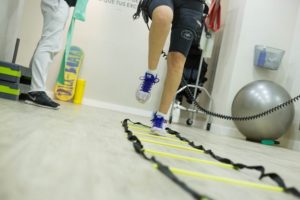In the first of our series of blogs to highlight Action on Stroke month, Dr Katie Gallacher, a clinical academic GP partner and Stroke Association Senior Clinical Fellow at the University of Glasgow discusses the issue of treatment burden for stroke survivors and their families.
The hard work of living with a chronic illness.
Modern medicine is a good thing. And this is especially true in the field of stroke. Advances in science and medicine over the past two to three decades have resulted in improved survival rates and less disability following a stroke. Clot busting drugs, stroke units, home rehabilitation and secondary prevention medications are now widely available across westernised countries. But is there a flip side to this increased availability of treatments? Stroke survivors often experience a period of intense rehabilitation in the weeks or months following their stroke, followed by lifelong medications and therapies to enhance recovery and prevent further stroke. The result is a considerable workload of health management that demands time, effort and sometimes money from stroke survivors, who commonly have several other long-term conditions to manage alongside their stroke, all accompanied by their own workload. This workload of healthcare can be underappreciated by healthcare providers, yet it is something we should all consider.
The burden of treatment.
The term ‘treatment burden’ has been coined to describe the workload of healthcare for people with long-term conditions such as stroke and the impact of this on well-being. Healthcare work can include: attending appointments; talking with health professionals; organising prescriptions; taking medications; undergoing physiotherapy; understanding and processing information; accessing care; making lifestyle changes; setting goals; working to reach those goals; developing coping strategies; reflecting on progress; and many more factors. A stroke survivor may feel burdened by their treatments if the volume of work is too high, for example too many appointments to attend, or if the healthcare received is poorly planned and delivered, for example poor co-ordination between healthcare providers resulting in appointments for the nurse and doctor being given at the same venue but on different days. A lack of input from healthcare providers can also be viewed as burdensome, for example housebound patients may struggle to access routine check ups in the community if a home-visit service is not available. Treatment burden is important because it carries with it the risk of serious consequences such as reduced quality of life and poor health outcomes.
No two people are the same.
The feeling of burden is dependent on a person’s individual circumstances and abilities. Indeed, if two people were to be given the same healthcare workload, it is likely that they would feel burdened in different ways and to different degrees and it is possible that they may not feel burdened at all. How treatment burden is experienced depends on factors such as social support, general level of physical and mental wellbeing, psychological difficulties and financial circumstances. For example, an older, frail, socially isolated and individual with poor memory may feel more burdened than a younger person living with a spouse who has good family support and is financially better off.
How can we lessen treatment burden.
So far, research has sought to help us understand how stroke survivors experience treatment burden. The next big challenge is to develop ways of measuring and lessening treatment burden. This will involve interventions developed through rigorous research, but a cultural change amongst healthcare providers is also required. A pause for reflection before recommending or prescribing treatments along with an open conversation with people about what they can or cannot manage to do is a good place to start, however a better co-ordinated, more person centred and supportive health service is essential to improve the experience of those who have survived a stroke.
 Katie Gallacher (@GallacherKatie)
Katie Gallacher (@GallacherKatie)
https://www.gla.ac.uk/researchinstitutes/healthwellbeing/staff/katiegallacher/

